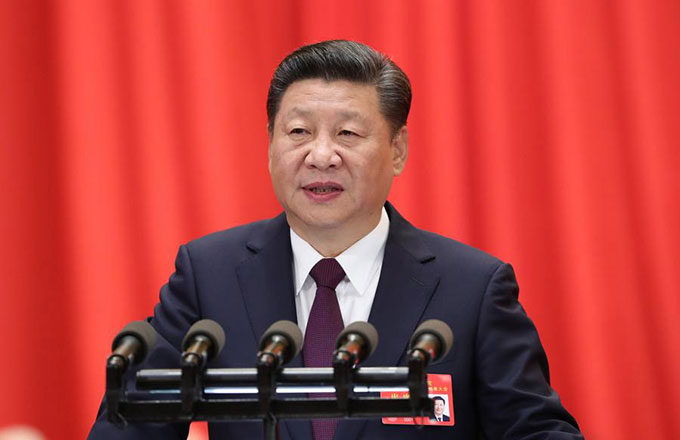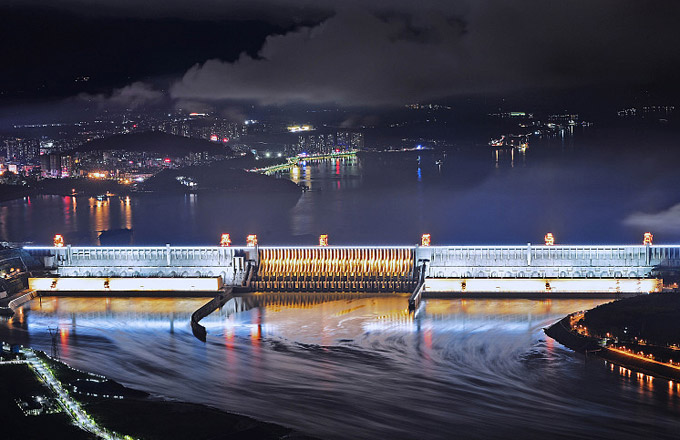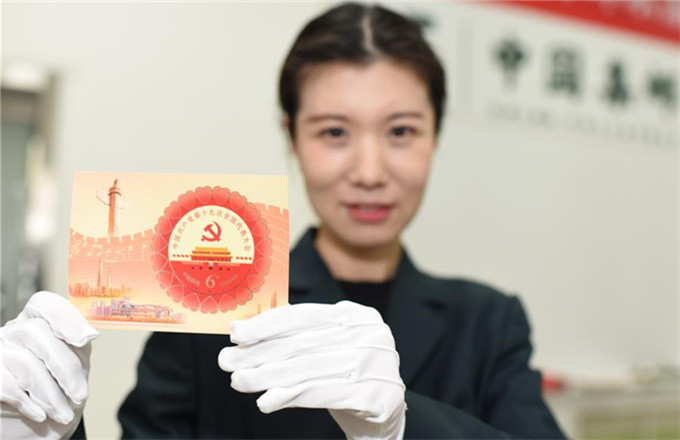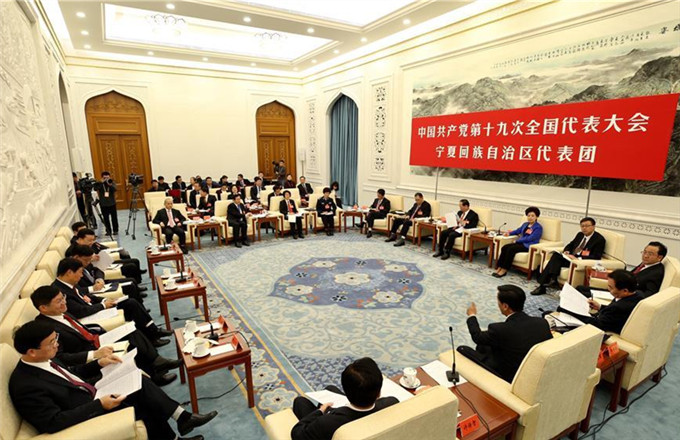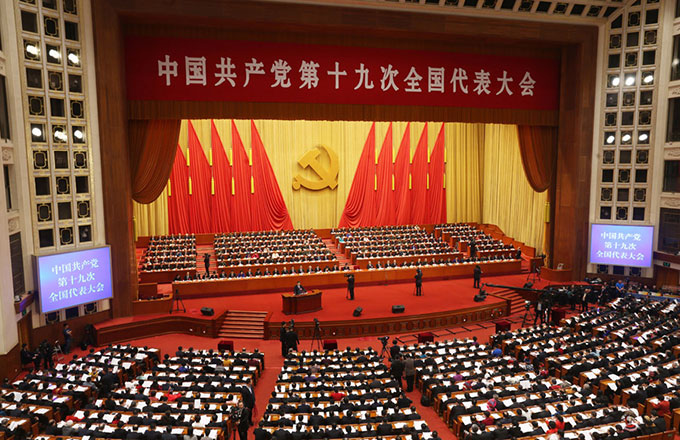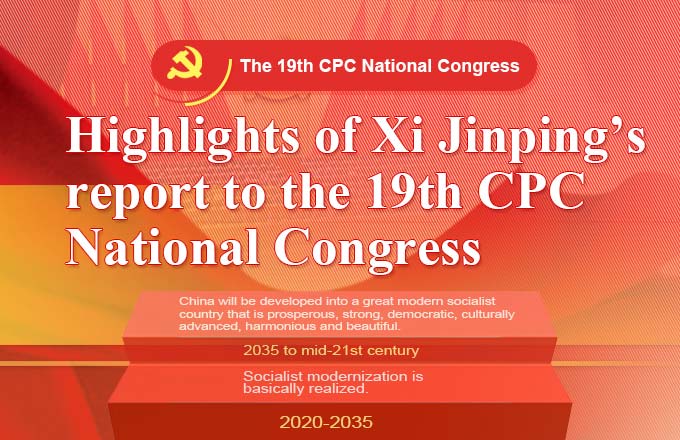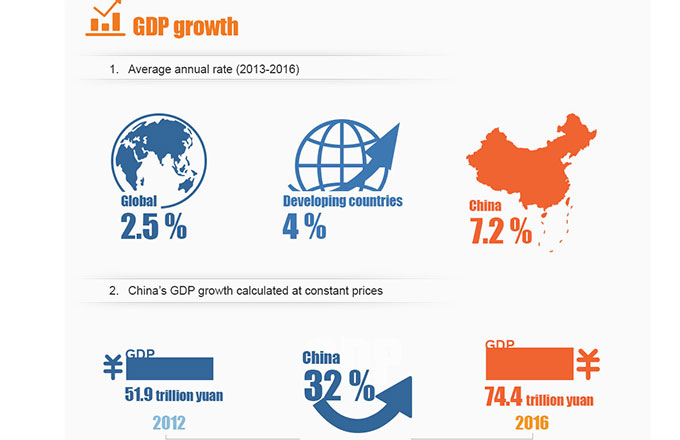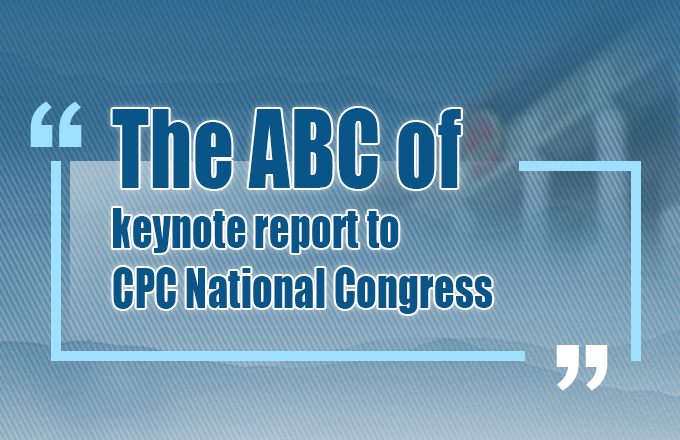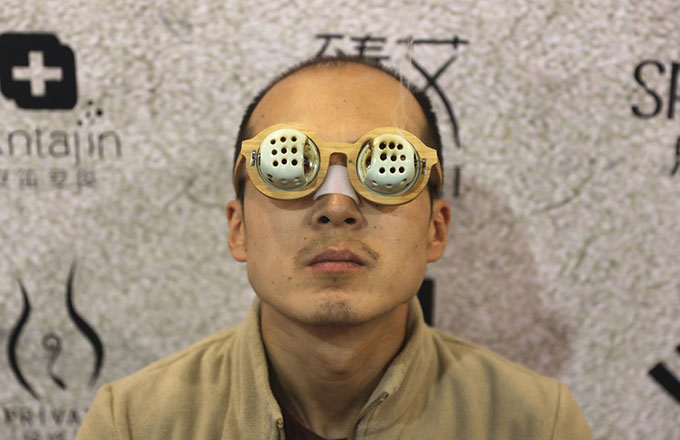China aims to improve State-owned enterprises to compete globally
China will create bigger and stronger State-owned enterprises that are capable of competing globally, while phasing out excessive capacity in bloated sectors, according to the country's State assets regulator.
Party delegates from central SOEs attending the 19th National Congress of the Communist Party of China agreed to enhance scale and strength, make progress in scientific and technological innovation and continue to pursue internal endeavors.
The pledges echoed remarks made by Xi Jinping, general secretary of the CPC Central Committee, at the congress on Wednesday when he called for further reform over the next five years to make SOEs "stronger, better and larger".
The scale and strength of these enterprises have been remarkably expanded in the past five years, according to Hao Peng, Party secretary of the State-owned Assets Supervision and Administration Commission.
The value of assets held by China's centrally owned enterprises was 53 trillion yuan ($8 trillion) in September this year, an increase of 80 percent from 2012, Hao said.
Meanwhile, profits at central SOEs in the past five years totaled 6.4 trillion yuan, a more than 30 percent jump.
After gaining success in manned space flight, moon exploration, deep-sea detection, and high-speed railways, among others, SOEs will step up efforts in world-leading and marker-setting technologies so as to ascend their core competitiveness and bring related industries to develop at the high end of the industrial value chain.
"The success of the Tianzhou-1 mission, the launch of a home-made aircraft carrier and the maiden flight of a home-made large passenger jet demonstrate the strength, key role and great importance of Chinese SOEs," Hao said.
For instance, China Aerospace Science and Industry Corp, one of the nation's major space contractors, will aim to boost intelligent manufacturing through the use of big data, artificial intelligence and cloud computing technologies, said its Chairman Gao Hongwei.
SOEs will continue to push ahead with the establishment of modern corporate system by improving corporate governance structure and enhancing the efficiency of capital operation, said Xiao Yaqing, head of the State-assets regulator.
Mixed ownership reform, another key measure to rejuvenate State assets with private capital, will be carried out in batches, Xiao noted.
So far 68.9 percent of central SOEs have adopted mixed ownership, with some companies conducting pilot employee stock ownership programs in their third-tier subsidiaries.
"We will spare no efforts in resolving excess production capacity and dispose of 'zombie enterprises', which operate with extreme difficulty," Xiao said.
Centrally administered State-owned companies have cut steel capacity by more than 16 million tons and coal capacity by 55.1 million tons this year.
SOEs are also on course to expand their overseas footprints, through participating in the Belt and Road Initiative, said Chen Fenjian, president of China Communications Construction Co Ltd.
"We've built more than 150 bridges, 10,000 kilometers of roads, 2,000 kilometers of railways and 10 airports in countries and regions related to the initiative," he said. "We are committed to having more such projects on board."
- 440 senior officials investigated for corruption
- Power companies going green for blue skies, energy sector delegates say
- China to make new breakthrough in quantum communication: CPC delegate
- World's most powerful computer will boost nation, scientist says
- Xi delivers report to 19th CPC National Congress





